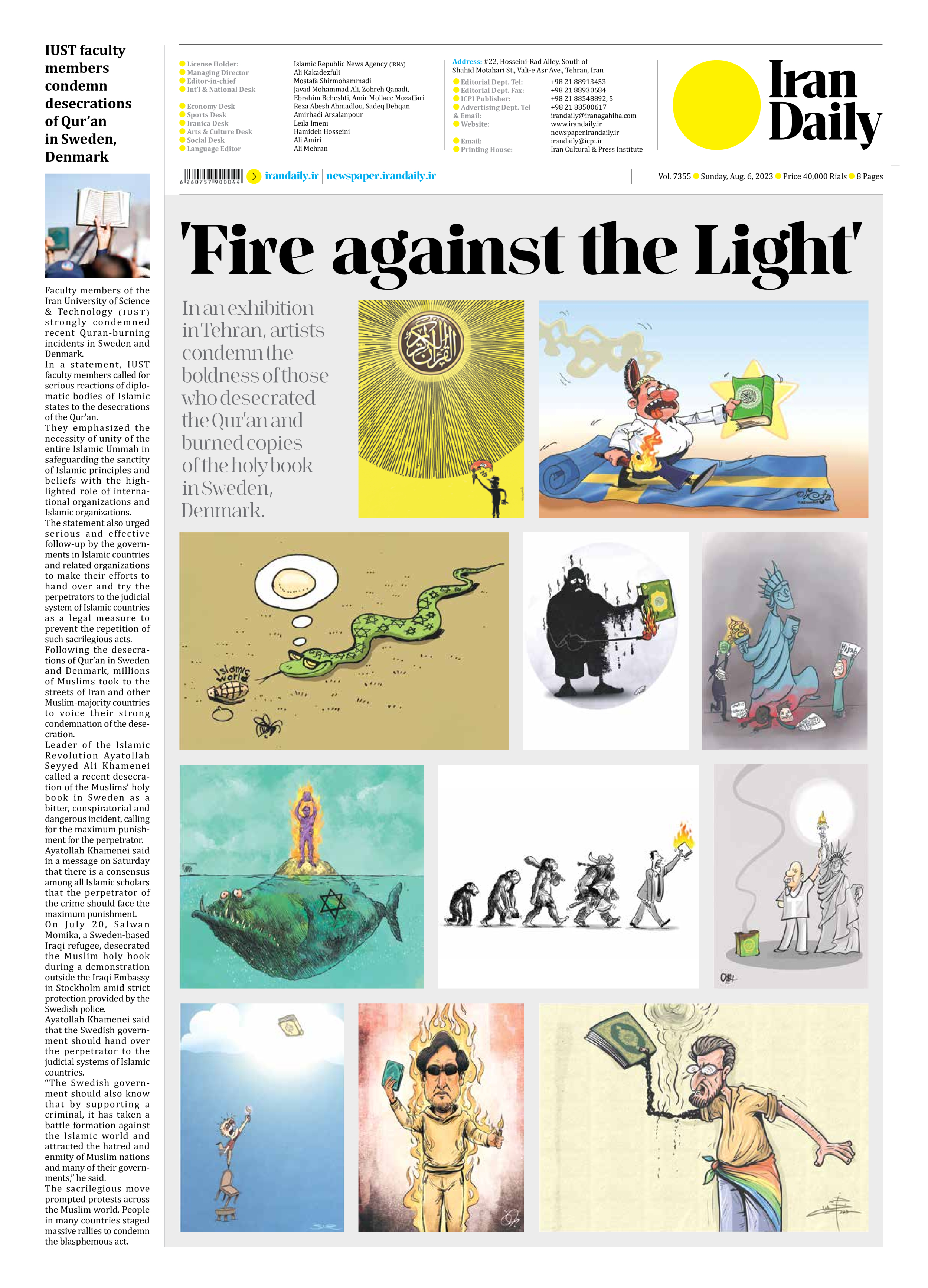
IUST faculty members condemn desecrations of Qur’an in Sweden, Denmark
Faculty members of the Iran University of Science & Technology (IUST) strongly condemned recent Quran-burning incidents in Sweden and Denmark.
In a statement, IUST faculty members called for serious reactions of diplomatic bodies of Islamic states to the desecrations of the Qur’an.
They emphasized the necessity of unity of the entire Islamic Ummah in safeguarding the sanctity of Islamic principles and beliefs with the highlighted role of international organizations and Islamic organizations.
The statement also urged serious and effective follow-up by the governments in Islamic countries and related organizations to make their efforts to hand over and try the perpetrators to the judicial system of Islamic countries as a legal measure to prevent the repetition of such sacrilegious acts.
Following the desecrations of Qur’an in Sweden and Denmark, millions of Muslims took to the streets of Iran and other Muslim-majority countries to voice their strong condemnation of the desecration.
Leader of the Islamic Revolution Ayatollah Seyyed Ali Khamenei called a recent desecration of the Muslims’ holy book in Sweden as a bitter, conspiratorial and dangerous incident, calling for the maximum punishment for the perpetrator.
Ayatollah Khamenei said in a message on Saturday that there is a consensus among all Islamic scholars that the perpetrator of the crime should face the maximum punishment.
On July 20, Salwan Momika, a Sweden-based Iraqi refugee, desecrated the Muslim holy book during a demonstration outside the Iraqi Embassy in Stockholm amid strict protection provided by the Swedish police.
Ayatollah Khamenei said that the Swedish government should hand over the perpetrator to the judicial systems of Islamic countries.
“The Swedish government should also know that by supporting a criminal, it has taken a battle formation against the Islamic world and attracted the hatred and enmity of Muslim nations and many of their governments,” he said.
The sacrilegious move prompted protests across the Muslim world. People in many countries staged massive rallies to condemn the blasphemous act.







